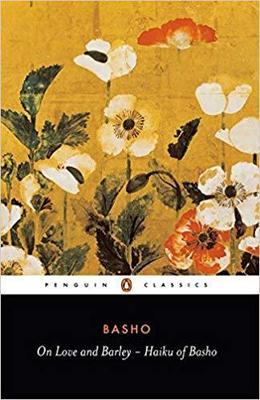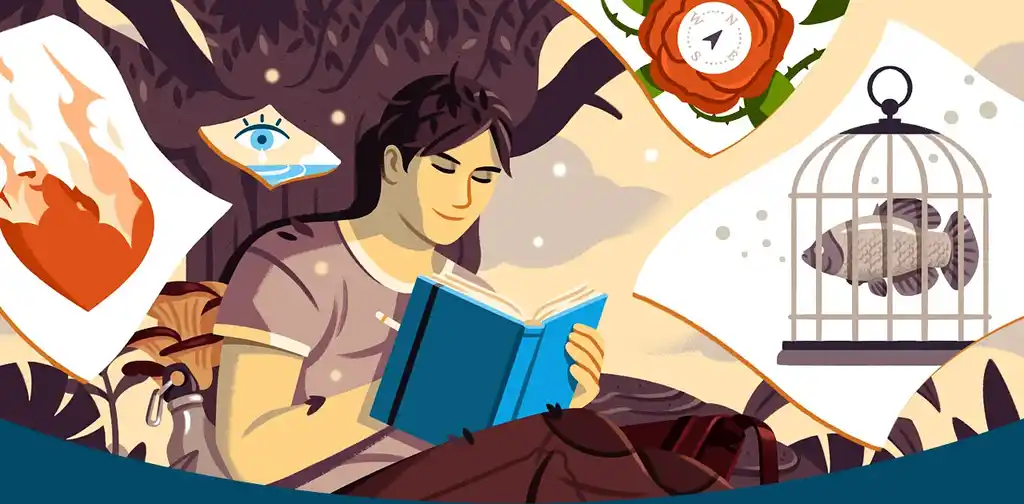Blog – Posted on Friday, Oct 11
60+ Best Poetry Books of All Time

Poetry is an art form that predates written text. It fuses meaning, sound, and rhythm to create magical worlds that offer insights into ourselves – and into the unknown. Since it’s taken to the page, poets have even been able to play with how it looks, using word placement to add yet another layer of meaning. The form almost defies definition, but we know we tend to look to it when we need a little inspiration, to light that spark that only the best poetry knows how to ignite 🔥
If you’re feeling the urge to jump into the world of poetry books, you’ve come to the right place. We’ve compiled a list of collections that should satisfy the breadth and width of most poetic imaginations, from the traditional to the avant-garde. It includes what some consider the best poetry books of all time, alongside lesser-known but equally breathtaking compilations.
Some of the poetry books below are individual collections, while others offer an overview of a certain poet’s work. And then there are anthologies that gather groups of similar poets for closer reflection. Spanning many countries, languages, and time periods, the list below will have you perfectly primed for the endless possibilities that poetry has to offer.
Psst — if you've ever wondered which 20-second poem you can recite while washing your hands, take our quiz below 😉
📚
Which 20-second poem should you recite while washing your hands?
Discover the perfect poem for you. Takes 30 seconds!
Best Poetry Book Classics
1. The Complete Poems of Emily Dickinson by Emily Dickinson (1830–1886)
 Emily Dickinson surprisingly only had eleven poems published during her lifetime. It’s hard not to recognize a Dickinson poem these days, with its signature dashes and short lines, but a complete collection of her works didn’t come out until 1955, so she was almost doomed to obscurity. The Complete Poems of Emily Dickinson includes three chronologically organized volumes containing 1775 poems that not only showcase the writer’s genius, but also provide a history of her thoughts and feelings — in poems of course.
Emily Dickinson surprisingly only had eleven poems published during her lifetime. It’s hard not to recognize a Dickinson poem these days, with its signature dashes and short lines, but a complete collection of her works didn’t come out until 1955, so she was almost doomed to obscurity. The Complete Poems of Emily Dickinson includes three chronologically organized volumes containing 1775 poems that not only showcase the writer’s genius, but also provide a history of her thoughts and feelings — in poems of course.
Excerpt: “'Hope' is the thing with feathers – / That perches in the soul – / And sings the tune without the words – / And never stops – at all –”
2. If Not, Winter: Fragments of Sappho by Sappho, Translated by Anne Carson (Died 580 BC)
 The Ancient Greek poet Sappho wrote nine volumes of poetry books, but only one poem survived in its entirety, “The Ode To Aphrodite.” In If Not, Winter: Fragments of Sappho, classicist and poet Anne Carson pieces together the fragments Sappho left behind. Carson includes the original Greek alongside her translations, infusing creativity and cohesiveness into this vibrant revival of the tenth muse’s timeless poetry.
The Ancient Greek poet Sappho wrote nine volumes of poetry books, but only one poem survived in its entirety, “The Ode To Aphrodite.” In If Not, Winter: Fragments of Sappho, classicist and poet Anne Carson pieces together the fragments Sappho left behind. Carson includes the original Greek alongside her translations, infusing creativity and cohesiveness into this vibrant revival of the tenth muse’s timeless poetry.
Excerpt: “Come to me now: loose me from hard / care and all my heart longs / to accomplish, accomplish. You / be my ally.”
3. The Rumi Collection by Rumi (1207–1273), Translated by Kabir Helminski
 Jalāl ad-Dīn Muhammad Rūmī was a 13th-century Persian poet, theologian, scholar, and mystic whose poetry has transcended cultures and language barriers. In The Rumi Collection, several translators join together to offer their keen adaptations to this poet’s ecstatic work, under the direction of editor Kabir Helminski. Each of the eighteen chapters are arranged by topic, such as "The Inner Work," "The Ego Animal," "Passion for God," "Praise," and "Purity."
Jalāl ad-Dīn Muhammad Rūmī was a 13th-century Persian poet, theologian, scholar, and mystic whose poetry has transcended cultures and language barriers. In The Rumi Collection, several translators join together to offer their keen adaptations to this poet’s ecstatic work, under the direction of editor Kabir Helminski. Each of the eighteen chapters are arranged by topic, such as "The Inner Work," "The Ego Animal," "Passion for God," "Praise," and "Purity."
Excerpt: “You know the true value of every article of / merchandise, / but if you don’t know the value of your own soul, / it’s all foolishness.”
4. On Love and Barley: Haiku of Basho by Basho (1644–1694), Translated by Lucien Stark
Basho was not only a 17th-century Japanese haiku master — he was also a Buddhist monk and traveler. He engaged with natural imagery to create his well-known haikus and even his pen name — writing under Basho after being gifted basho trees from a student. On Love and Barley: Haiku of Basho, translates and refines Basho’s work. It also contextualizes it with a foreword by the translator, Lucien Stark, discussing how Basho’s life and beliefs influenced his poetry.
Excerpt: “Spring’s exodus — / birds shriek, / fish eyes blink tears”
5. The Divine Comedy by Dante Alighieri (1265-1321)
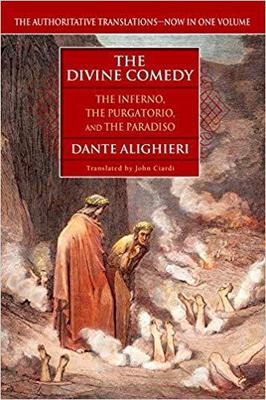 Regarded as one of Italy’s premier poets, Dante Alighieri is also celebrated as a major influence in Western culture. His magnum opus is the epic poem The Divine Comedy (Commedia). Building a three-part world — Inferno, Purgatorio, and Paradiso — The Divine Comedy presents a multifaceted overview of medieval beliefs with mystical intensity.
Regarded as one of Italy’s premier poets, Dante Alighieri is also celebrated as a major influence in Western culture. His magnum opus is the epic poem The Divine Comedy (Commedia). Building a three-part world — Inferno, Purgatorio, and Paradiso — The Divine Comedy presents a multifaceted overview of medieval beliefs with mystical intensity.
Excerpt: “How I came to it I cannot rightly say,/so drugged and loose with sleep I had become/when I first wandered there/from the True Way.”
6. The Complete Sonnets and Poems by William Shakespeare (1564–1616)
 Although better known for his plays, Shakespeare became famous first as a poet. The Complete Sonnets and Poems combines his sonnets and unforgettable love poems with all of his others, including those attributed to him after his death. His sonnets are poignant musings on love, morality, and the effects of time. The volume’s introduction discusses the Bard’s development and dissects how his poems relate to his plays. Shakespeare’s poetry is a wonderful entry point into the Elizabethan era in which he wrote and gives a deeper understanding of his overarching body of work.
Although better known for his plays, Shakespeare became famous first as a poet. The Complete Sonnets and Poems combines his sonnets and unforgettable love poems with all of his others, including those attributed to him after his death. His sonnets are poignant musings on love, morality, and the effects of time. The volume’s introduction discusses the Bard’s development and dissects how his poems relate to his plays. Shakespeare’s poetry is a wonderful entry point into the Elizabethan era in which he wrote and gives a deeper understanding of his overarching body of work.
Excerpt: "So they lov'd, as love in twain / Had the essence but in one; / Two distincts, division none: / Number there in love was slain.”
7. Leaves of Grass by Walt Whitman (1819–1892)
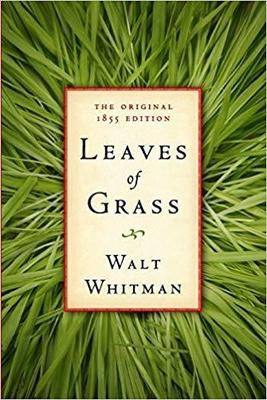 In 1855, Walt Whitman published the first edition of Leaves of Grass, at his own expense. He utilized an innovative free verse style and what was deemed “immoral” subject matter, celebrating nature, love, the body, and friendship. While Whitman continued to work on Leaves of Grass, adding new poems with each printing, this edition presents the original twelve poems from his debut 1855 edition. Included are some of the highly lauded poems of modern times: "Song of Myself," and "I Sing the Body Electric.”
In 1855, Walt Whitman published the first edition of Leaves of Grass, at his own expense. He utilized an innovative free verse style and what was deemed “immoral” subject matter, celebrating nature, love, the body, and friendship. While Whitman continued to work on Leaves of Grass, adding new poems with each printing, this edition presents the original twelve poems from his debut 1855 edition. Included are some of the highly lauded poems of modern times: "Song of Myself," and "I Sing the Body Electric.”
Excerpt: “O I say these are not the parts and poems of the body only, but of the soul, / O I say now these are the soul!”
8. John Donne’s Poetry by John Donne (1572–1631)
 John Donne was more than just an English poet. He was also a preacher and a major representative of the metaphysical poetry of the 16th century. Donne’s pragmatic and sensual style was wide-ranging, encompassing sonnets, love poetry, religious poems, and Latin translations, among several other forms. Many know him best for his “Death Be Not Proud”, but all of the poems found in John Donne’s Poetry are awe-inspiring.
John Donne was more than just an English poet. He was also a preacher and a major representative of the metaphysical poetry of the 16th century. Donne’s pragmatic and sensual style was wide-ranging, encompassing sonnets, love poetry, religious poems, and Latin translations, among several other forms. Many know him best for his “Death Be Not Proud”, but all of the poems found in John Donne’s Poetry are awe-inspiring.
Excerpt: “Death, be not proud, though some have called thee / Mighty and dreadful, for thou art not so; / For those whom thou think'st thou dost overthrow / Die not, poor Death, nor yet canst thou kill me.”
9. Complete Writings by Phyllis Wheatley (1753-1784)
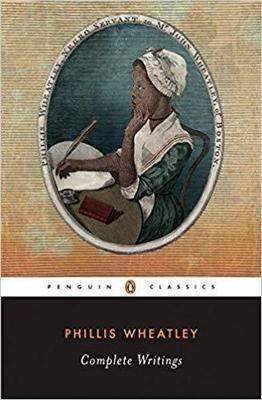 Phillis Wheatley was seized from Africa at the age of seven and became a slave to a Boston commercialist. Yet, she published her first poem in 1767 at the age of 14, garnering attention and fame. Wheatley’s poetry employs classical themes and techniques, translating Ovid and transforming Horace’s odes with her own incisive twists. Not just a poetry collection, Complete Writings also collects Wheatley’s letters. As a bonus, the appendix includes poems by Wheatley's contemporary African-American poets: Lucy Terry, Jupiter Harmon, and Francis Williams.
Phillis Wheatley was seized from Africa at the age of seven and became a slave to a Boston commercialist. Yet, she published her first poem in 1767 at the age of 14, garnering attention and fame. Wheatley’s poetry employs classical themes and techniques, translating Ovid and transforming Horace’s odes with her own incisive twists. Not just a poetry collection, Complete Writings also collects Wheatley’s letters. As a bonus, the appendix includes poems by Wheatley's contemporary African-American poets: Lucy Terry, Jupiter Harmon, and Francis Williams.
Excerpt: “But here I sit, and mourn a grov’ling mind, / That fain would mount, and ride upon the wind. / But I less happy, cannot raise the song, / The fault’ring music dies upon my tongue.”
10. The Flowers of Evil by Charles Baudelaire (1821-1867)
 Shocking the 19th-century French literary world, The Flowers of Evil was Charles Baudelaire’s dance with the taboo. He linked sexuality and death, played with irony, and celebrated the disturbing aspects of urban life. This version collects the six poems originally banned in 1857, and offers both the French and English versions side-by-side for readers to dissect and interpret as they please.
Shocking the 19th-century French literary world, The Flowers of Evil was Charles Baudelaire’s dance with the taboo. He linked sexuality and death, played with irony, and celebrated the disturbing aspects of urban life. This version collects the six poems originally banned in 1857, and offers both the French and English versions side-by-side for readers to dissect and interpret as they please.
Excerpt: “Nature is a temple, where the living / Columns sometimes breathe confusing speech; / Man walks within these groves of symbols, each / Of which regards him as a kindred thing.”
11. The Complete Poetry Of Edgar Allan Poe by Edgar Allan Poe (1809-1849)
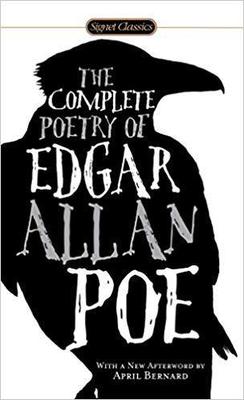 Best known for his short stories, Edgar Allan Poe was by all accounts an influential poet as well. Most can hear The Raven’s call when thinking of him, but he had several other exquisite lyrical poems under his belt, among them “To Helen” and “Annabel Lee.” While he stood next to Romantic poets, he also influenced Victorian heavy hitters like Tennyson. The Complete Poetry of Edgar Allen Poe lays Poe’s original imagination bare for the reader’s delight.
Best known for his short stories, Edgar Allan Poe was by all accounts an influential poet as well. Most can hear The Raven’s call when thinking of him, but he had several other exquisite lyrical poems under his belt, among them “To Helen” and “Annabel Lee.” While he stood next to Romantic poets, he also influenced Victorian heavy hitters like Tennyson. The Complete Poetry of Edgar Allen Poe lays Poe’s original imagination bare for the reader’s delight.
Excerpt: “Once upon a midnight dreary, while I pondered, weak and weary, / Over many a quaint and curious volume of forgotten lore — / While I nodded, nearly napping, suddenly there came a tapping, / As of some one gently rapping, rapping at my chamber door.”
Best 20th-Century Poetry
12. Robert Frost’s Poems by Robert Frost (1874–1963)
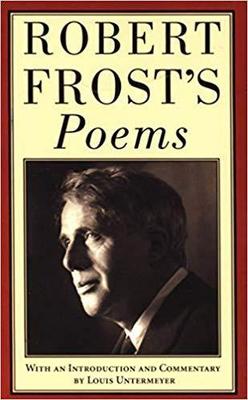 It’s hard to imagine a poetry list that doesn’t include the infamous Robert Frost. Appropriately, Robert Frost's Poems contains all of his best-known poems — plus several underrated ones. Whether he is mending a wall or stopping by a wood on a snowy evening, Frost knows just how to touch his reader’s hearts with his melodic lines and skillful rendering of the human condition.
It’s hard to imagine a poetry list that doesn’t include the infamous Robert Frost. Appropriately, Robert Frost's Poems contains all of his best-known poems — plus several underrated ones. Whether he is mending a wall or stopping by a wood on a snowy evening, Frost knows just how to touch his reader’s hearts with his melodic lines and skillful rendering of the human condition.
Excerpt: “Something there is that doesn't love a wall, / That sends the frozen-ground-swell under it, / And spills the upper boulders in the sun; / And makes gaps even two can pass abreast.”
13. 100 Selected Poems by e e cummings (1894–1962)
 e e cummings is known for his playful lyricism that springs off the page. His mastery of an inventive style has cemented him as an accessible and widely read poet. 100 Selected Poems contains some of his “wittiest and profound” poems spanning 35 years of writing.
e e cummings is known for his playful lyricism that springs off the page. His mastery of an inventive style has cemented him as an accessible and widely read poet. 100 Selected Poems contains some of his “wittiest and profound” poems spanning 35 years of writing.
Excerpt: “when the world is puddle-wonderful / the queer / old balloonman whistles / far and wee / and bettyandisable come dancing / from hop-scotch and jump-rope and / it’s / spring”
14. Selected Poems by Mary Oliver (1935–2019)
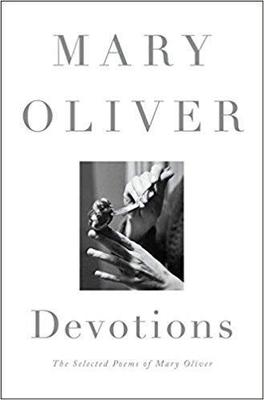 Selected Poems was curated by Oliver herself. It spans work from her very first book of poetry, published in 1964, to Felicity, published in 2015. Oliver is noted for her inspiring observations of the natural world and the ease with which she highlights the powerful bonds between all living things. This collection is an edifying testament to the natural world she knows so well.
Selected Poems was curated by Oliver herself. It spans work from her very first book of poetry, published in 1964, to Felicity, published in 2015. Oliver is noted for her inspiring observations of the natural world and the ease with which she highlights the powerful bonds between all living things. This collection is an edifying testament to the natural world she knows so well.
Excerpt: “The vulture’s / wings are / black death / color but / the underwings / as sunlight / flushes into / the feathers / are bright / are swamped/with light.”
15. The Complete Poetry by Maya Angelou (1928–2014)
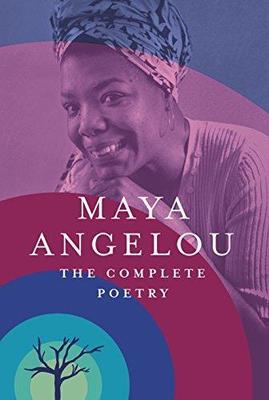 Maya Angelou was a renowned poet, activist, and teacher. The Complete Poetry spans from her meditations on African American life, drawn from the collection Just Give Me a Cool Drink of Water ’fore I Diiie, to her renowned proclamation of womanhood in the poem “Still I Rise.” It also includes “On the Pulse of Morning,” a tribute made at President Clinton’s inauguration. Whether you are familiar with Angelou’s work or a newcomer to it, this collection will give all you need to feel the force of her powerful poetry.
Maya Angelou was a renowned poet, activist, and teacher. The Complete Poetry spans from her meditations on African American life, drawn from the collection Just Give Me a Cool Drink of Water ’fore I Diiie, to her renowned proclamation of womanhood in the poem “Still I Rise.” It also includes “On the Pulse of Morning,” a tribute made at President Clinton’s inauguration. Whether you are familiar with Angelou’s work or a newcomer to it, this collection will give all you need to feel the force of her powerful poetry.
Excerpt: “Out of the huts of history’s shame / I rise / Up from a past that’s rooted in pain / I rise”
16. Migration: New and Selected Poems by W.S. Merwin (1927-2019)
 Selected by Merwin from fifteen volumes of his poetry, Migration is 540 pages of his work, supplemented with a few new poems as well. An avid conservationist, Merwin treats language systems as well as ecosystems, and his poems reflect the state of our world in a spirit of wonderment and warning. This collection moves from his early career to his recent work, and makes a great primer to his canon.
Selected by Merwin from fifteen volumes of his poetry, Migration is 540 pages of his work, supplemented with a few new poems as well. An avid conservationist, Merwin treats language systems as well as ecosystems, and his poems reflect the state of our world in a spirit of wonderment and warning. This collection moves from his early career to his recent work, and makes a great primer to his canon.
Excerpt: “I want to tell what the forests / were like / I will have to speak / in a forgotten language”
17. Selected Poems by Frank O’Hara (1926–1966)
 A New York School favorite, Frank O’Hara delves into the conversational with his thoughts on everyday life. His Selected Poems include prose as well as his “Personism Manifesto,” in which he advocates for the relationship between the poet and the person. It’s hard not to fall in love with O’Hara’s joyous proclamations of life, as he invites the reader into his intimate musings.
A New York School favorite, Frank O’Hara delves into the conversational with his thoughts on everyday life. His Selected Poems include prose as well as his “Personism Manifesto,” in which he advocates for the relationship between the poet and the person. It’s hard not to fall in love with O’Hara’s joyous proclamations of life, as he invites the reader into his intimate musings.
Excerpt: “there is no snow in Hollywood / there is no rain in California / I have been to lots of parties / and acted perfectly disgraceful / but I never actually collapsed / oh Lana Turner we love you get up”
18. Selected Poems by Langston Hughes (1901–1967)
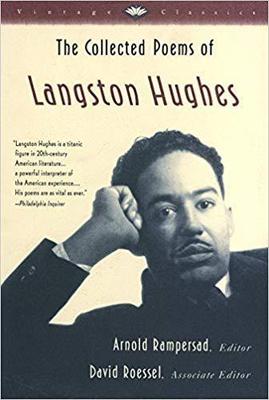 In 1926, Hughes released his first book of poems, The Weary Blues, sparking an African American Renaissance in writing. Hughes’ poems highlight the invisible men and women of America, showcasing the stories of slaves, musicians, the poor, and the plighted. The poems in Selected Poems were chosen by Hughes himself shortly before his death and showcase his directness as well as his range in style.
In 1926, Hughes released his first book of poems, The Weary Blues, sparking an African American Renaissance in writing. Hughes’ poems highlight the invisible men and women of America, showcasing the stories of slaves, musicians, the poor, and the plighted. The poems in Selected Poems were chosen by Hughes himself shortly before his death and showcase his directness as well as his range in style.
Excerpt: “O, sweep of stars over Harlem streets / O, little breath of oblivion that is night. / A city building / to a mother’s song. / A city dreaming / to a lullaby.”
19. Ariel by Sylvia Plath (1932–1963)
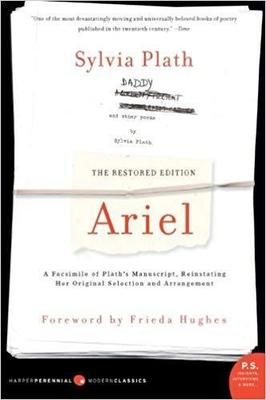 Sylvia Plath is known for her confessional novel, The Bell Jar, but her poems are just as stirring. Plath’s last work, Ariel, contains some of her most memorable poems: “Lady Lazarus,” “Daddy,” and “Paralytic,” to name a few. While she can be unforgivingly forceful with her despairing and vengeful tone, she is capable of tenderness and vulnerability too. Plath opens up a world that many would shy away from, and makes the reader better for it.
Sylvia Plath is known for her confessional novel, The Bell Jar, but her poems are just as stirring. Plath’s last work, Ariel, contains some of her most memorable poems: “Lady Lazarus,” “Daddy,” and “Paralytic,” to name a few. While she can be unforgivingly forceful with her despairing and vengeful tone, she is capable of tenderness and vulnerability too. Plath opens up a world that many would shy away from, and makes the reader better for it.
Excerpt: “Out of the ash / I rise with my red hair / and eat men like air”
20. The Collected Poems by Audre Lorde (1934–1992)
 Audre Lorde was a self-described “black, lesbian, mother, warrior, poet,” whose poetry paved the way for black lesbian feminist identity. Often political and beautifully lyrical in her writing, Lorde devoted her life to addressing systems of injustice. Her oeuvre, as presented in The Collected Poems, conveys the power, accessibility, and urgency of her work.
Audre Lorde was a self-described “black, lesbian, mother, warrior, poet,” whose poetry paved the way for black lesbian feminist identity. Often political and beautifully lyrical in her writing, Lorde devoted her life to addressing systems of injustice. Her oeuvre, as presented in The Collected Poems, conveys the power, accessibility, and urgency of her work.
Excerpt: “But if it’s said / at some future date / that my son’s head / is on straight / he won’t care / about his / hair / nor give a damn / whose wife / I am.”
21. Diving Into The Wreck by Adrienne Rich (1929–2012)
 Adrienne Rich’s Diving Into The Wreck is an exploration of what has been lost. The poems are an attempt to recover the submerged — within ourselves and within the collective consciousness. In this, the seventh collection of her poetry, her metaphors are abundant, as she examines destruction and what remains to rise from the deep.
Adrienne Rich’s Diving Into The Wreck is an exploration of what has been lost. The poems are an attempt to recover the submerged — within ourselves and within the collective consciousness. In this, the seventh collection of her poetry, her metaphors are abundant, as she examines destruction and what remains to rise from the deep.
Excerpt: "I came to explore the wreck. / The words are purposes. / The words are maps. / I came to see the damage that was done / and the treasures that prevail."
22. The Essential Neruda: Selected Poems (Bilingual Edition) by Pablo Neruda (1904 -1973)
 Chilean poet Pablo Neruda won the Nobel Prize in Literature in 1971 and has been enchanting readers with the breadth of his poetic vision ever since. This carefully translated and selected collection offers side-by-side Spanish and English versions of the prolific poet’s work. With 50 poems, curated by a team of poets and Neruda scholars from both Chile and the U.S., The Essential Neruda offers the perfect place to enter Neruda’s ouvre if you aren’t sure where to start.
Chilean poet Pablo Neruda won the Nobel Prize in Literature in 1971 and has been enchanting readers with the breadth of his poetic vision ever since. This carefully translated and selected collection offers side-by-side Spanish and English versions of the prolific poet’s work. With 50 poems, curated by a team of poets and Neruda scholars from both Chile and the U.S., The Essential Neruda offers the perfect place to enter Neruda’s ouvre if you aren’t sure where to start.
Excerpt: “Leaning into the evenings I toss my sad nets / to that sea which stirs your ocean eyes.”
23. The Essential Gwendolyn Brooks by Gwendolyn Brooks (1917–2000)
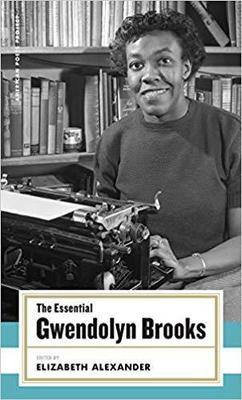 Gwendolyn Brooks was a dynamic poet who blended themes of modernity and the urban experience across several different forms. "Her formal range," writes editor Elizabeth Alexander, "is most impressive, as she experiments with sonnets, ballads, spirituals, blues, full and off-rhymes. She is nothing short of a technical virtuoso." The Essential Gwendolyn Brooks begins with her first work, A Street In Brownsville, includes poems from the Pulitzer Prize-winning Annie Allen, and ends with a poem from her latest, In Montgomery and Other Poems. Brooks is an essential touchstone to 20th-century poetry, and this collection will have readers nodding their heads in astounded agreement with her insights.
Gwendolyn Brooks was a dynamic poet who blended themes of modernity and the urban experience across several different forms. "Her formal range," writes editor Elizabeth Alexander, "is most impressive, as she experiments with sonnets, ballads, spirituals, blues, full and off-rhymes. She is nothing short of a technical virtuoso." The Essential Gwendolyn Brooks begins with her first work, A Street In Brownsville, includes poems from the Pulitzer Prize-winning Annie Allen, and ends with a poem from her latest, In Montgomery and Other Poems. Brooks is an essential touchstone to 20th-century poetry, and this collection will have readers nodding their heads in astounded agreement with her insights.
Excerpt: “We real cool. We / Left school. We / Lurk late. We / Strike straight. We / Sing sin. We / Thin gin. We / Jazz June. We / Die soon.”
24. I Remember by Joe Brainard (1941-1994)
 I Remember is a lyrical prose-poem memoir that traces Brainard’s memory with great specificity. Through its trance-like anaphora and rhythm, the reader experiences moments of silliness, frankness, and inquisitiveness, as each remembrance flows seamlessly into the next. His memories also trigger readers’ reminiscences, giving the book universal appeal. After reading this book, it will be tempting to pick up a pencil and write your own version.
I Remember is a lyrical prose-poem memoir that traces Brainard’s memory with great specificity. Through its trance-like anaphora and rhythm, the reader experiences moments of silliness, frankness, and inquisitiveness, as each remembrance flows seamlessly into the next. His memories also trigger readers’ reminiscences, giving the book universal appeal. After reading this book, it will be tempting to pick up a pencil and write your own version.
Excerpt: “I remember “close dancing” with arms dangling straight down. / I remember red rubber coin purses / that opened like a pair of lips, with a squeeze.”
25. Passing Through by Stanley Kunitz (1905-2006)
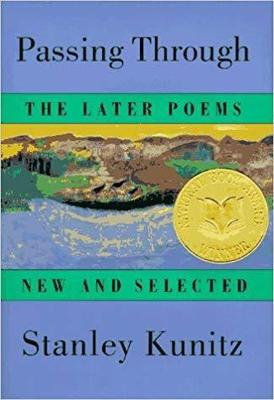 Stanley Kunitz’s fastidious narratives and descriptions guide the reader into a profound reality. Written when he was 90, Passing Through is at once retrospective, enchanting, and lyrical. The poems’ kernels of universal wisdom truly withstand the test of time. Winner of The National Book Award, this book includes poems that aren’t found in any of his other collections.
Stanley Kunitz’s fastidious narratives and descriptions guide the reader into a profound reality. Written when he was 90, Passing Through is at once retrospective, enchanting, and lyrical. The poems’ kernels of universal wisdom truly withstand the test of time. Winner of The National Book Award, this book includes poems that aren’t found in any of his other collections.
Excerpt: "In my sixty-fourth year / I can feel my cheek / still burning."
26. The Collected Poems 1912-1944 by H.D. (1886–1961)
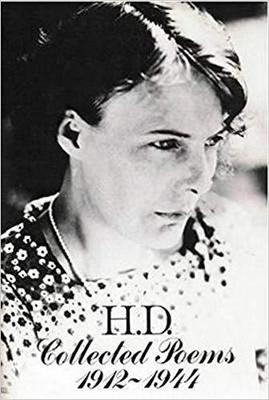 Hilda Doolittle, better known by her pen name H.D., wrote with a unique style that reflected much of what was happening in the world towards the end of WWII. The Collected Poems 1912-1944 tracks the development of H. D.'s work from her early imagist poems to her formidable civilian war poems in Trilogy. The book comes complete with textual notes and an introductory essay by Professor Louis L. Martz, allowing the reader to relate her life and surrounding events to her literary work.
Hilda Doolittle, better known by her pen name H.D., wrote with a unique style that reflected much of what was happening in the world towards the end of WWII. The Collected Poems 1912-1944 tracks the development of H. D.'s work from her early imagist poems to her formidable civilian war poems in Trilogy. The book comes complete with textual notes and an introductory essay by Professor Louis L. Martz, allowing the reader to relate her life and surrounding events to her literary work.
Excerpt: “O poplar, you are great/among the hillstones, / while I perish on the path / among the crevices of the rocks.”
27. The Selected Poetry of Edna St. Vincent Millay by Edna St. Vincent Millay (1892–1950)
 Winner of the Pulitzer Prize in 1923, Edna St. Vincent Millay combined modernist attitude with traditional forms. Like her contemporary, Robert Frost, she was a skilled sonneteer, but her riveting performances and uncanny sensibilities really made her stand out from the crowd. The Selected Poetry of Edna St. Vincent Millay is edited by her biographer Nancy Milford, who noted, “Edna St. Vincent Millay became the herald of the New Woman.” And as Milford writes in her introduction, “These are the poems that made Edna St. Vincent Millay’s reputation when she was young. Saucy, insolent, flip, and defiant, her little verses sting the page.”
Winner of the Pulitzer Prize in 1923, Edna St. Vincent Millay combined modernist attitude with traditional forms. Like her contemporary, Robert Frost, she was a skilled sonneteer, but her riveting performances and uncanny sensibilities really made her stand out from the crowd. The Selected Poetry of Edna St. Vincent Millay is edited by her biographer Nancy Milford, who noted, “Edna St. Vincent Millay became the herald of the New Woman.” And as Milford writes in her introduction, “These are the poems that made Edna St. Vincent Millay’s reputation when she was young. Saucy, insolent, flip, and defiant, her little verses sting the page.”
Excerpt: “My candle burns at both ends / it will not last the night; / But ah, my foes, and oh, my friends — / it gives a lovely light!”
28. The Selected Poems by Federico Garcia Lorca (1898–1937)
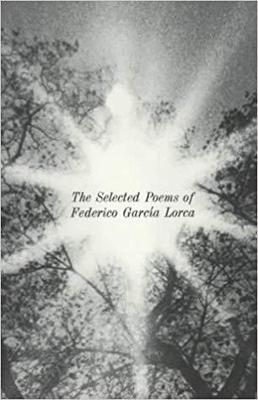 Spanish dramatist and poet Federico Garcia Lorca was a prominent fixture in the 20th-century poetry scene. Lorca’s poems are chock full of influences, including his surrealist friends (like Salvadore Dali), Spanish folklore, and Romani culture. The Selected Poems of Federico García Lorca has several poet-translators, including Stephen Spender, Langston Hughes, Ben Belitt, William Jay Smith, and W.S. Merwin, to give you a variety of interpretations of his enigmatic verse.
Spanish dramatist and poet Federico Garcia Lorca was a prominent fixture in the 20th-century poetry scene. Lorca’s poems are chock full of influences, including his surrealist friends (like Salvadore Dali), Spanish folklore, and Romani culture. The Selected Poems of Federico García Lorca has several poet-translators, including Stephen Spender, Langston Hughes, Ben Belitt, William Jay Smith, and W.S. Merwin, to give you a variety of interpretations of his enigmatic verse.
Excerpt: “Is this my friend, your twilight constitutional? / Please use your cane,’you are very old Mr. Lizard, / and the children of the village / may startle you.”
29. The Dream Songs by John Berryman (1914-1972)
The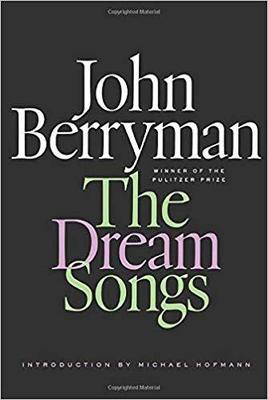 Dream Songs chart the adventures of an American anti hero named Henry as he bounces between love, sanity, joy, and desire. Berryman is as playful and shrewd as his character, making Dream Songs a favorite for those looking to have their glass of poetry served with a pinch of the absurd. This volume collects all 77 Dream Songs, which won Berryman the Pulitzer Prize in 1965, and their continuation, His Toy, His Dream, His Rest, which was awarded the National Book Award and the Bollingen Prize in 1969.
Dream Songs chart the adventures of an American anti hero named Henry as he bounces between love, sanity, joy, and desire. Berryman is as playful and shrewd as his character, making Dream Songs a favorite for those looking to have their glass of poetry served with a pinch of the absurd. This volume collects all 77 Dream Songs, which won Berryman the Pulitzer Prize in 1965, and their continuation, His Toy, His Dream, His Rest, which was awarded the National Book Award and the Bollingen Prize in 1969.
Excerpt: “And the tranquil hills, & gin, look like a drag / and somehow a dog/has taken itself & its tail considerably away / into mountains or sea / or sky, leaving / behind: me, wag.”
30. S.O.S. Poems 1961-2013 by Amiri Baraka (1934-2013)
 Amiri Baraka was no stranger to blending the personal and the political in his work. He was well known for his social criticism and became a controversial but influential figure, awakening readers to the concerns of black Americans. S.O.S. Poems includes the full spectrum of his revolutionary poems, from his early days in the company of beat poets like Allen Ginsberg, to his final works.
Amiri Baraka was no stranger to blending the personal and the political in his work. He was well known for his social criticism and became a controversial but influential figure, awakening readers to the concerns of black Americans. S.O.S. Poems includes the full spectrum of his revolutionary poems, from his early days in the company of beat poets like Allen Ginsberg, to his final works.
Excerpt: “We came into the / silly little church / shaking our wet raincoats / on the floor. / It wasn’t water, / that made the raincoats / wet.”
31. Selected Poems by Anna Akhmatova, translated by D.M. Thomas (1889-1966)
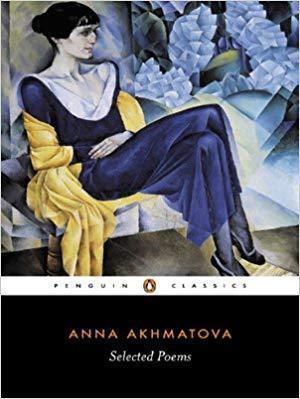 Anna Akhmatova is regarded as one of the greatest Russian poets, and her Selected Poems serves to demonstrate why. Akhmatova’s work was as noble and tragic as Russia’s history during the time that she was writing. Her verse followed the traditions of classical Russian culture, but was unique with its voice and emotional restraint. Though it was censored, she remained in Russia, where she wrote about the world she witnessed with amazing acuity.
Anna Akhmatova is regarded as one of the greatest Russian poets, and her Selected Poems serves to demonstrate why. Akhmatova’s work was as noble and tragic as Russia’s history during the time that she was writing. Her verse followed the traditions of classical Russian culture, but was unique with its voice and emotional restraint. Though it was censored, she remained in Russia, where she wrote about the world she witnessed with amazing acuity.
Excerpt: “And with you, my first vagary, / I partend. In the east it turned blue. / You said simply: ‘I won’t forget you.’ / I didn’t know at first what you could mean.”
32. Poems of Paul Celan: A Bilingual German/English Edition by Paul Celan (1920-1970), Translated by Paul Hamburger
 Born in Romania to a German-speaking Jewish family, Paul Celan wrote intensely from his life experience. The death of his parents in the Holocaust — and his own time spent as a prisoner in a work camp — were defining forces in his poetry. He lived in France for a time and was influenced by the surrealists, but the breadth of his work eschews a single category. Poems of Paul Celan’s powerful verse is sure to move readers to astonishment.
Born in Romania to a German-speaking Jewish family, Paul Celan wrote intensely from his life experience. The death of his parents in the Holocaust — and his own time spent as a prisoner in a work camp — were defining forces in his poetry. He lived in France for a time and was influenced by the surrealists, but the breadth of his work eschews a single category. Poems of Paul Celan’s powerful verse is sure to move readers to astonishment.
Excerpt: "Black milk of daybreak we drink it at sundown / we drink it at noon in the morning we drink it at night / we drink and we drink it / we dig a grave in the breezes there one lies unconfined"
33. A Little Larger Than The Entire Universe: Selected Poems by Fernando Pessoa (1888-1935)
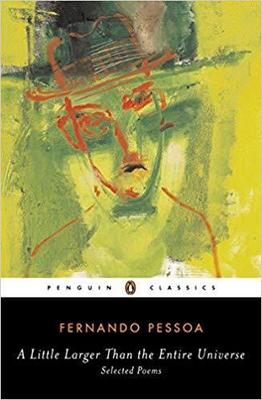 Fernando Pessoa was a writer of many faces — or, should we say, one with many literary personas. The Portuguese poet adopted his alter egos’ lifestyles and wrote through each one. A Little Larger Than The Entire Universe includes generous selections from his three poetic alter egos (he called them "heteronyms") — the uneducated poet Alberto Caeiro, the doctor Ricardo Reis, and the engineer Alvaro de Campos. The collection also includes the work he wrote under his own name, which he thought of as another persona altogether.
Fernando Pessoa was a writer of many faces — or, should we say, one with many literary personas. The Portuguese poet adopted his alter egos’ lifestyles and wrote through each one. A Little Larger Than The Entire Universe includes generous selections from his three poetic alter egos (he called them "heteronyms") — the uneducated poet Alberto Caeiro, the doctor Ricardo Reis, and the engineer Alvaro de Campos. The collection also includes the work he wrote under his own name, which he thought of as another persona altogether.
Excerpt: “I believe in the word as in a daisy, / Because I see it. But I don’t think about it, / Because to think is to not understand.”
34. The Complete Poems by Elizabeth Bishop (1911-1979)
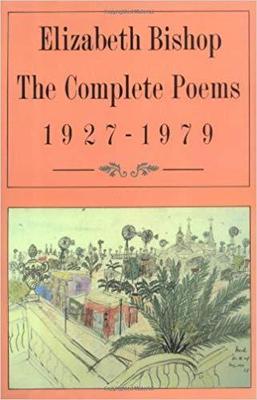 Elizabeth Bishop only published 101 poems in her lifetime, which isn’t that much, relatively speaking, but what she lacked in abundance she made up for with precision. Bishop was highly respected, and after her death, she became extremely popular for writing sincerely on themes like belonging. The Complete Poems includes the books North & South, A Cold Spring, Questions of Travel, and Geography III, as well as previously uncollected poems.
Elizabeth Bishop only published 101 poems in her lifetime, which isn’t that much, relatively speaking, but what she lacked in abundance she made up for with precision. Bishop was highly respected, and after her death, she became extremely popular for writing sincerely on themes like belonging. The Complete Poems includes the books North & South, A Cold Spring, Questions of Travel, and Geography III, as well as previously uncollected poems.
Excerpt: “The art of losing isn’t hard to master; / so many things seem filled with the intent / to be lost that their loss is no disaster. / Lose something every day. Accept the fluster / of lost door keys, the hour badly spent. / The art of losing isn’t hard to master.”
35. Self-Portrait in a Convex Mirror by John Ashbery (1927–2017)
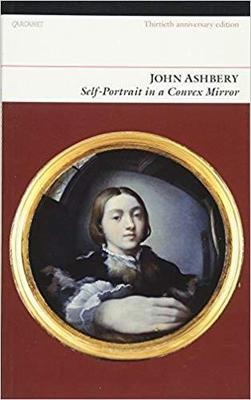 Self-Portrait in a Convex Mirror won the triple crown in the literary world: the Pulitzer Prize, the National Book Award, and the National Book Critics' Circle Award. It’s safe to say that this is Ashberry’s masterpiece. Visual art was one of his inspirations: the long title poem is a meditation on Parmigianino's famous self-portrait. The book also gives the reader an introduction to Ashbery’s favored theme of writing about the creative act.
Self-Portrait in a Convex Mirror won the triple crown in the literary world: the Pulitzer Prize, the National Book Award, and the National Book Critics' Circle Award. It’s safe to say that this is Ashberry’s masterpiece. Visual art was one of his inspirations: the long title poem is a meditation on Parmigianino's famous self-portrait. The book also gives the reader an introduction to Ashbery’s favored theme of writing about the creative act.
Excerpt: “A breeze like the turning of a page / Brings back your face: the moment / Takes such a big bite out of the haze / Of pleasant intuition it comes after.”
Best Poetry Books By Living Writers
36. Citizen: An American Lyric by Claudia Rankine (1963–)
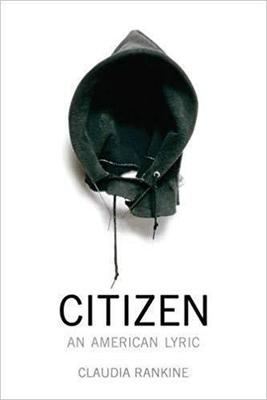 Finalist for the National Book Award, with several other accolades under its belt, Citizen: An American Lyric and its inventive form is difficult to describe. It is one long poem that includes pictures, slogans, and social commentary and reads a bit like an essay. Rankine takes a keen eye to who is recognized as an American citizen, and forces the reader to consider the racially charged implications of everyday interactions. Her work allows for ambiguity but compels the reader not to turn away.
Finalist for the National Book Award, with several other accolades under its belt, Citizen: An American Lyric and its inventive form is difficult to describe. It is one long poem that includes pictures, slogans, and social commentary and reads a bit like an essay. Rankine takes a keen eye to who is recognized as an American citizen, and forces the reader to consider the racially charged implications of everyday interactions. Her work allows for ambiguity but compels the reader not to turn away.
Excerpt: “You tell your neighbor that your friend, whom he has met, is babysitting. He says no, it’s not him. He’s met your friend and this isn’t that nice young man. Anyway, he wants you to know, he’s called the police.”
37. A Beautiful Marsupial Afternoon by CA Conrad (1966–)
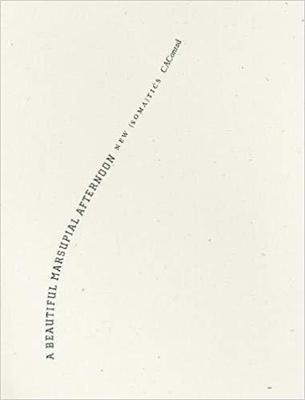 CA Conrad’s A Beautiful Marsupial Afternoon reads like a list of somatic writing exercises and the poems such exercises would produce. As they say in the introduction, “I cannot stress enough how much this mechanistic world, as it becomes more and more efficient, resulting in ever increasing brutality, has required me to FIND MY BODY to FIND MY PLANET in order to find my poetry.” Conrad invites you to find your body with this collection.
CA Conrad’s A Beautiful Marsupial Afternoon reads like a list of somatic writing exercises and the poems such exercises would produce. As they say in the introduction, “I cannot stress enough how much this mechanistic world, as it becomes more and more efficient, resulting in ever increasing brutality, has required me to FIND MY BODY to FIND MY PLANET in order to find my poetry.” Conrad invites you to find your body with this collection.
Excerpt: “is it time to become unreasonable? / yes it’s time to become unreasonable!”
38. Felt by Alice Fulton (1952–)
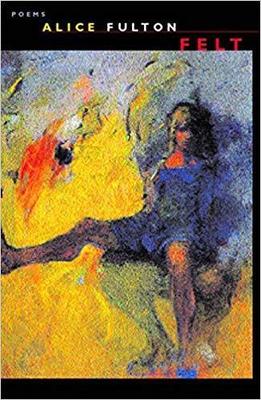 Alice Fulton plays with the various meanings of the word Felt as both a fabric and the past tense of “to feel”. She touches on the many shades of emotion, privacy, proximity, flaws, and fetishism, among several other themes. Her work is both visceral and cerebral and will take you on a journey of the — sometimes untoward — imagination.
Alice Fulton plays with the various meanings of the word Felt as both a fabric and the past tense of “to feel”. She touches on the many shades of emotion, privacy, proximity, flaws, and fetishism, among several other themes. Her work is both visceral and cerebral and will take you on a journey of the — sometimes untoward — imagination.
Excerpt: “She dismantled ground and figure / till the fathoms were ambiguous —/ a sentence left unfinished / because everyone knows what’s meant,”
39. Don’t Call Us Dead by Danez Smith
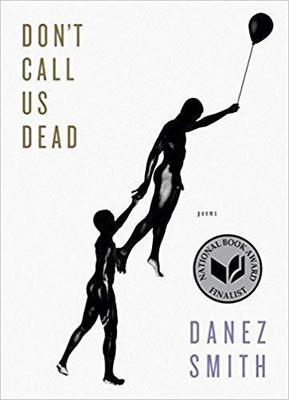 Don’t Call Us Dead was a finalist for the National Book Award. Stunning when performed aloud, it’s just as cutting on the page. As its blurb details, Don’t Call Us Dead “opens with a heartrending sequence that imagines an afterlife for black men shot by police, a place where suspicion, violence, and grief are forgotten and replaced with the safety, love, and longevity they deserved here on earth.”
Don’t Call Us Dead was a finalist for the National Book Award. Stunning when performed aloud, it’s just as cutting on the page. As its blurb details, Don’t Call Us Dead “opens with a heartrending sequence that imagines an afterlife for black men shot by police, a place where suspicion, violence, and grief are forgotten and replaced with the safety, love, and longevity they deserved here on earth.”
Excerpt: “does it matter how he got here if we’re all here / to dance? grab a boy! spin him around! / if he asks for a kiss, kiss him. / if he asks where he is, say gone”
40. Oceanic by Aimee Nezhukumatathil (1974–)
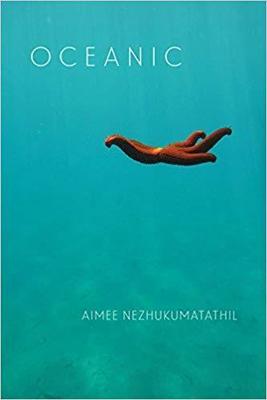 As Roxane Gay describes it, Oceanic contains “a true sense of wonder.” The New York Times calls the work “strange” and “lush”, as Nezekkhamatathil weaves details and nuances together to create folk tales for the modern era. She brings Niagara Falls to life in one of her poems, describes a c-section scar in another. In this work, it is easy to see — and feel — reverence for the natural world.
As Roxane Gay describes it, Oceanic contains “a true sense of wonder.” The New York Times calls the work “strange” and “lush”, as Nezekkhamatathil weaves details and nuances together to create folk tales for the modern era. She brings Niagara Falls to life in one of her poems, describes a c-section scar in another. In this work, it is easy to see — and feel — reverence for the natural world.
Excerpt: “And that’s how you feel after tumbling / like sea stars on the ocean floor over each other. / A night where it doesn’t matter / which are arms or which are legs / or what radiates and how — / only your centers stuck together.”
41. Night Sky With Exit Wounds by Ocean Vuong (1988–)
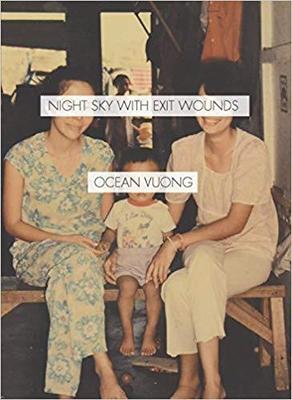 Winner of the 2016 Whiting Award, Night Sky With Exit Wounds is Ocean Vuong’s debut collection. He writes on individual, familial, and historical traumas, as the poems speak to themes like queer identity, and the violence inflicted upon his family during the Vietnam War. Vuong varies his style, tone, and subject matter, inviting readings of all types into this unique collection.
Winner of the 2016 Whiting Award, Night Sky With Exit Wounds is Ocean Vuong’s debut collection. He writes on individual, familial, and historical traumas, as the poems speak to themes like queer identity, and the violence inflicted upon his family during the Vietnam War. Vuong varies his style, tone, and subject matter, inviting readings of all types into this unique collection.
Excerpt: “Your father is only your father / until one of you forgets. Like how the spine / won’t remember its wings / no matter how many times our knees / kiss the pavement.”
42. There Are More Beautiful Things Than Beyonce by Morgan Parker (1988–)
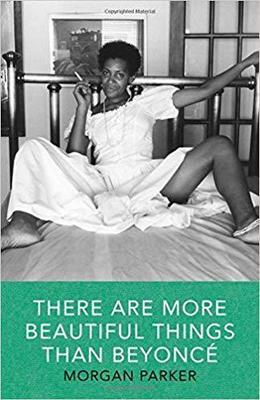 Morgan Parker’s There Are More Beautiful Things Than Beyonce is a meditation on the complexities of black womanhood. It is equal parts feminist, tender, and fierce, reflecting times of wars over bodies and struggles for power. Parker’s work celebrates and mourns the world she experiences, with a wit that will leave you breathless.
Morgan Parker’s There Are More Beautiful Things Than Beyonce is a meditation on the complexities of black womanhood. It is equal parts feminist, tender, and fierce, reflecting times of wars over bodies and struggles for power. Parker’s work celebrates and mourns the world she experiences, with a wit that will leave you breathless.
Excerpt: “What kind of bodies are movable / and feasts. What color are visions / When he opens his mouth / a chameleon is inside, starving.”
43. Life On Mars by Tracy K. Smith (1972–)
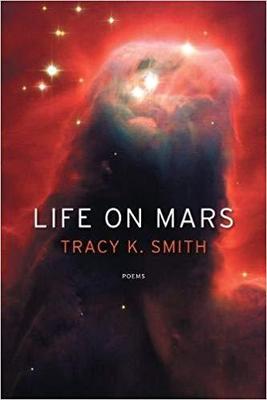 Tracy K Smith’s Life On Mars won the Pulitzer Prize, and as the title may suggest, it’s chock full of interplanetary allusions, from David Bowie to black holes. The collection is beautifully intimate and conjures up a future full of mystery and hope. Smith speculates on the realities of lives lived on Mars, and even touches on the loss of her father, one of the engineers who worked on the Hubble Space telescope.
Tracy K Smith’s Life On Mars won the Pulitzer Prize, and as the title may suggest, it’s chock full of interplanetary allusions, from David Bowie to black holes. The collection is beautifully intimate and conjures up a future full of mystery and hope. Smith speculates on the realities of lives lived on Mars, and even touches on the loss of her father, one of the engineers who worked on the Hubble Space telescope.
Excerpt: “You lie there kicking like a baby, waiting for God himself / To lift you past the rungs of your crib. What / Would your life say if it could talk?”
44. Autobiography of Red by Anne Carson (1950–)
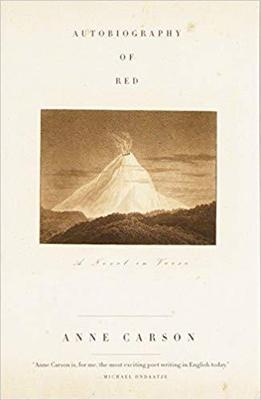 In Autobiography of Red, classicist Carson blends both forms and time periods. The work is a poem as well as a novel, a recreation of an ancient Greek myth as well as a modern-day coming of age story. In summary, a young boy named Geryon, who is also a red-winged monster, retells the tale of his tormented life starting from the age of five. As he grows older, Geryon escapes his family and finds refuge through taking pictures — and in his relationship with a man, Herakles. With its inventive form, Autobiography of Red is an enchanting sketch of an artist as he comes to terms with the joys and pains of growing up.
In Autobiography of Red, classicist Carson blends both forms and time periods. The work is a poem as well as a novel, a recreation of an ancient Greek myth as well as a modern-day coming of age story. In summary, a young boy named Geryon, who is also a red-winged monster, retells the tale of his tormented life starting from the age of five. As he grows older, Geryon escapes his family and finds refuge through taking pictures — and in his relationship with a man, Herakles. With its inventive form, Autobiography of Red is an enchanting sketch of an artist as he comes to terms with the joys and pains of growing up.
Excerpt: “Geryon’s dream began red then slipped out of the vat and ran / Upsail broke silver shot up through his roots like a pup / Secret pup At the front end of another red day”
45. All The Garbage Of The World Unite! By Kim Kyesoon (1955–)
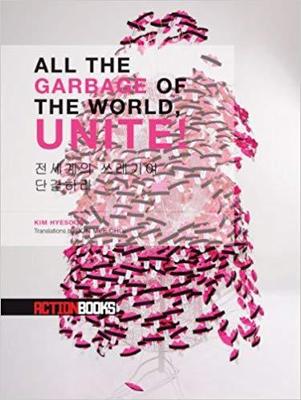 South Korean poet Kim Hyesoon fuses love, death, and garbage into this dazzling amalgam of poetic forms. All The Garbage Of The World Unite! experiments with language and creates a visceral world that is equal parts beautiful and grotesque. The language also comes in close proximity to the body, as it pulls from the natural world. The collection includes intuitively incisive translations and a preface by Don Mee Choi.
South Korean poet Kim Hyesoon fuses love, death, and garbage into this dazzling amalgam of poetic forms. All The Garbage Of The World Unite! experiments with language and creates a visceral world that is equal parts beautiful and grotesque. The language also comes in close proximity to the body, as it pulls from the natural world. The collection includes intuitively incisive translations and a preface by Don Mee Choi.
Excerpt: “Have you ever swallowed a tornado? / A tornado is supposed to be swallowed / through your backbone / My body flips over / my hair becomes as stiff as frozen laundry / and I feel goose bumps down my backbone”
46. Words Under The Words: Selected Poems by Naomi Shihab Nye (1952–)
 Nye’s Word Under The Words spans the human experience, from a donor of a broken jukebox, to a woman searching for holiness. This collection draws from Naomi Shihab Nye's three critically acclaimed books: Different Ways to Pray, Yellow Glove, and National Poetry Series winner, Hugging the Jukebox. The last third of the book focuses on the poet’s Palestinian-American heritage, looking to the Middle East with an inquisitive eye.
Nye’s Word Under The Words spans the human experience, from a donor of a broken jukebox, to a woman searching for holiness. This collection draws from Naomi Shihab Nye's three critically acclaimed books: Different Ways to Pray, Yellow Glove, and National Poetry Series winner, Hugging the Jukebox. The last third of the book focuses on the poet’s Palestinian-American heritage, looking to the Middle East with an inquisitive eye.
Excerpt: "What makes a man with a gun seem bigger / than a man with almonds?”
47. bury it by sam sax (1986–)
 sam sax's bury it was the winner of the 2017 James Laughlin Award from the Academy of American Poets. An enigmatic performer, sax creates rhythmic poems that move beautifully on the page — and in the ear. Harkening to a string of young gay suicides in 2010, the poems meditate on themes of death, identity, connection, desire, longing, and belonging. According to Laughlin Award judge Tyehimba Jess, "bury it is lit with imagery and purpose that surprises and jolts at every turn.”
sam sax's bury it was the winner of the 2017 James Laughlin Award from the Academy of American Poets. An enigmatic performer, sax creates rhythmic poems that move beautifully on the page — and in the ear. Harkening to a string of young gay suicides in 2010, the poems meditate on themes of death, identity, connection, desire, longing, and belonging. According to Laughlin Award judge Tyehimba Jess, "bury it is lit with imagery and purpose that surprises and jolts at every turn.”
Excerpt: “I only want the world / to end when I’m done / with it”
48. A Sand Book by Ariana Reienes (1982–)
 Ariana Reines’s poetry casts a spell over the reader, wrapping poetic sensibilities in a cloak of wonderment, ancient and modern alike. Touching on topics that range from climate change to ghosting, A Sand Book opens up new ways of interpreting our current reality. “Sand” is a major motif, recurring in Sandy Hook, Sandra Bland, the desertification of the world, and more. It’s a dazzling book that is hard to put down.
Ariana Reines’s poetry casts a spell over the reader, wrapping poetic sensibilities in a cloak of wonderment, ancient and modern alike. Touching on topics that range from climate change to ghosting, A Sand Book opens up new ways of interpreting our current reality. “Sand” is a major motif, recurring in Sandy Hook, Sandra Bland, the desertification of the world, and more. It’s a dazzling book that is hard to put down.
Excerpt: “They taught us the world / Was ending but they were wrong / They hardly taught us anything / Hiding themselves / In the cantaloupe / Light at the witching / Hour.”
49. Picture Bride by Cathy Song (1955–)
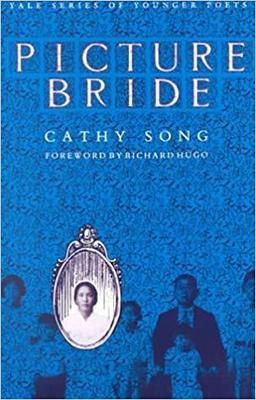 Born in Hawaii, Cathy Song writes from her Korean-Chinese roots as well as her experience as an American woman. She’s a master tiny moments, highlighting the power found in even the smallest things. Picture Bride is the winning volume in the 1982 Yale Series of Younger Poets competition. The book traces people on their journeys through life leaving tender moments lying in waiting on the page.
Born in Hawaii, Cathy Song writes from her Korean-Chinese roots as well as her experience as an American woman. She’s a master tiny moments, highlighting the power found in even the smallest things. Picture Bride is the winning volume in the 1982 Yale Series of Younger Poets competition. The book traces people on their journeys through life leaving tender moments lying in waiting on the page.
Excerpt: “Wahiawa is still / a red dirt town/ where the sticky smell / of pineapples / being lopped off/ in the low-lying fields / rises to mix /with the minty leaves / of eucalyptus/ in the bordering gulch.”
50. When My Brother Was An Aztec by Natalie Diaz
 Natalie Diaz’s When My Brother Was An Aztec throws light on Mojave life through a range of characters and difficult themes. She skillfully segues from the narrative to the lyrical, allowing the reader to bear witness to her messages in multiple forms. While focusing on her community, the collection touches the reader with its humanity, offering something we can all relate to.
Natalie Diaz’s When My Brother Was An Aztec throws light on Mojave life through a range of characters and difficult themes. She skillfully segues from the narrative to the lyrical, allowing the reader to bear witness to her messages in multiple forms. While focusing on her community, the collection touches the reader with its humanity, offering something we can all relate to.
Excerpt: “Angels don’t come to the reservation./Bats, maybe, or owls. Boxy mottled things. / Coyotes too. They all mean the same thing — / death. And death/eats angels I guess, because I haven’t seen an angel/fly through this valley ever.”
51. The Descent of Alette by Alice Notley (1945–)
 In The Descent of Alette, Alice Notley presents an epic journey into deeper realms reminiscent of Dante’s Inferno. The reader finds the narrator, Alette, underground, in the subways of a city where spirits and people ride around without the ability to leave. Notley uses quotation marks to pace the poems, creating subway cars into which the words travel. Alette’s descent is riveting and will have readers wondering what is in store for her at the turn of each page.
In The Descent of Alette, Alice Notley presents an epic journey into deeper realms reminiscent of Dante’s Inferno. The reader finds the narrator, Alette, underground, in the subways of a city where spirits and people ride around without the ability to leave. Notley uses quotation marks to pace the poems, creating subway cars into which the words travel. Alette’s descent is riveting and will have readers wondering what is in store for her at the turn of each page.
Excerpt: ““One day, I awoke” “& found myself on” “a subway, endlessly” / “I didn’t know” “how I’d arrived there or” “who I was exactly””
52. Sleeping with the Dictionary by Haryette Mullen (1953–)
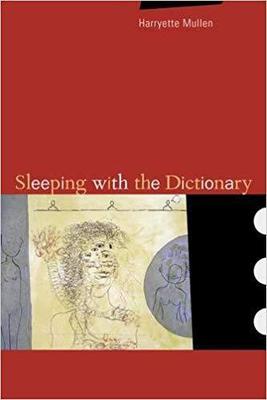 Harryette Mullen has a no-holds-barred approach to word play in her collection Sleeping with the Dictionary. She utilizes everything from acrostics to homophones in her exploration of language. A number of the poems are even inspired by the Oulipian technique of N+7 – replacing every noun in a text with the seventh noun after it in the dictionary. Sleeping With The Dictionary reimagines the Shakespearean sonnet and even airline safety instructions, giving the reader a whole new outlook on what the English language can give and take away.
Harryette Mullen has a no-holds-barred approach to word play in her collection Sleeping with the Dictionary. She utilizes everything from acrostics to homophones in her exploration of language. A number of the poems are even inspired by the Oulipian technique of N+7 – replacing every noun in a text with the seventh noun after it in the dictionary. Sleeping With The Dictionary reimagines the Shakespearean sonnet and even airline safety instructions, giving the reader a whole new outlook on what the English language can give and take away.
Excerpt: You are a U-boat beyond my mind control / You are euthanasia beyond my miasma / You are a urethra beyond my Mysore.”
53. Hanging On Our Own Bones by Judy Grahn (1940–)
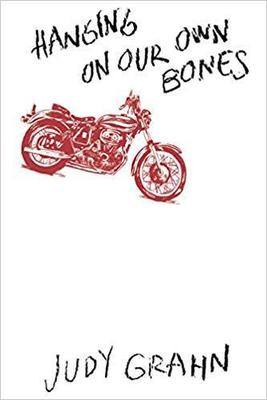 Hanging On Our Own Bodies is a collection of seven narrative poems that intersperse modern day circumstances with goddess mythology. Grahn calls them “ninepart poems”, which use rhythmic, incantatory verse to impart meaningful social critiques. Grahn was a central figure in the west coast feminist movement of the 1970s, and her poetry doesn’t shy away from the complexity of sexuality, race, and gender.
Hanging On Our Own Bodies is a collection of seven narrative poems that intersperse modern day circumstances with goddess mythology. Grahn calls them “ninepart poems”, which use rhythmic, incantatory verse to impart meaningful social critiques. Grahn was a central figure in the west coast feminist movement of the 1970s, and her poetry doesn’t shy away from the complexity of sexuality, race, and gender.
Excerpt: “We were driving home slow, my lover and I / across the long Bay Bridge / one February midnight when midway / over in the far left lane, I saw a strange scene.”
54. A Bernadette Mayer Reader by Bernadette Mayer (1945–)
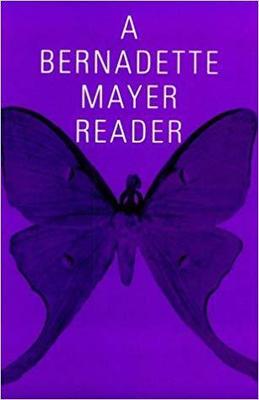 Bernadette Mayer lived for several years on the Lower East Side, and was the director of the Poetry Project at St. Mark’s Church. She uses the collaborative and humorous style of the New York School of poetry in her work. A Bernadette Mayer Reader includes sonnets, early poems, journal entries, and lectures — all of which paint an evocative portrait of her rich oeuvre.
Bernadette Mayer lived for several years on the Lower East Side, and was the director of the Poetry Project at St. Mark’s Church. She uses the collaborative and humorous style of the New York School of poetry in her work. A Bernadette Mayer Reader includes sonnets, early poems, journal entries, and lectures — all of which paint an evocative portrait of her rich oeuvre.
Excerpt: “Nowadays you guys settle for a couch / By a soporific color cable t.v. set / Instead of any arc of love, no wonder / The G.I. Joe team blows it every other time”
55. Neon Vernacular: New And Selected Poems by Yusef Komunyakaa (1947–)
 Yousef Komanyaka writes from both his identity as a black Southerner and his experience as a Vietnam Veteran. Winner of the 1994 Pulitzer Prize for Poetry, Neon Vernacular includes 12 new poems but also includes poems from his acclaimed collections Dien Cai Dau, Copacetic, and I Apologize for the Eyes in My Head. His poetry cuts to the heart of the human experience and will leave you aching.
Yousef Komanyaka writes from both his identity as a black Southerner and his experience as a Vietnam Veteran. Winner of the 1994 Pulitzer Prize for Poetry, Neon Vernacular includes 12 new poems but also includes poems from his acclaimed collections Dien Cai Dau, Copacetic, and I Apologize for the Eyes in My Head. His poetry cuts to the heart of the human experience and will leave you aching.
Excerpt: “That’s the oak I planted / The day before I left town / As if father and son / Needed staking down to earth.”
56. Selected Poems by Rita Dove (1952–)
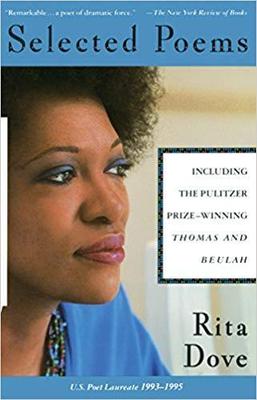 The US Poet Laureate from 1993-1995, Rita Dove’s selected poems collect her compassionate storytelling and incisive lyricism. Along with a new introduction and a never-before-seen poem, Selected Poems includes Dove's collections The Yellow House on the Corner, with a group of poems devoted to the themes of slavery and freedom; Museum, with its thoughtful reflections on home and the world; and the 1987 Pulitzer Prize winning Thomas and Beulah, loosely based on her grandparents' lives.
The US Poet Laureate from 1993-1995, Rita Dove’s selected poems collect her compassionate storytelling and incisive lyricism. Along with a new introduction and a never-before-seen poem, Selected Poems includes Dove's collections The Yellow House on the Corner, with a group of poems devoted to the themes of slavery and freedom; Museum, with its thoughtful reflections on home and the world; and the 1987 Pulitzer Prize winning Thomas and Beulah, loosely based on her grandparents' lives.
Excerpt: “I was ill, lying on my bed of old papers / when you came with white rabbits in your arms; / and the doves scattered upwards, flying to mothers / and the snails sighed under their baggage of stone…”
57. Half Light: Collected Poems 1965-2016 by Frank Bidart (1939–)
 Bidart doesn’t shy away from the dark places of the human psyche. He often takes on the voice of the “othered”, like a child murderer, or an anorexic woman. He also writes from his own poetic point-of-view. But no matter who he is channeling, all of his voices cunningly encompass the intricacies of the human experience. Half Light collects the contents of all of Bidart’s previous books plus a new collection, Thirst.
Bidart doesn’t shy away from the dark places of the human psyche. He often takes on the voice of the “othered”, like a child murderer, or an anorexic woman. He also writes from his own poetic point-of-view. But no matter who he is channeling, all of his voices cunningly encompass the intricacies of the human experience. Half Light collects the contents of all of Bidart’s previous books plus a new collection, Thirst.
Excerpt: “The love I’ve known is the love of / two people staring/ not at each other but in the same direction.”
Best Poetry Anthologies
58. Sing: Poetry from the Indigenous Americas edited by Allison Adelle Hedge Coke
 This multilingual collection gathers together more than eighty poets across territories spanning from Alaska to Chile. Sing features Indigenous poets both established and emerging, who are often underrepresented in anthologies. The result is a diverse collection of powerful voices, including some familiar names, like Louise Erdrich, Joy Harjo, Lee Maracle, and Simon Ortiz.
This multilingual collection gathers together more than eighty poets across territories spanning from Alaska to Chile. Sing features Indigenous poets both established and emerging, who are often underrepresented in anthologies. The result is a diverse collection of powerful voices, including some familiar names, like Louise Erdrich, Joy Harjo, Lee Maracle, and Simon Ortiz.
59. Gurlesque edited by Lara Glenum and Arielle Greenberg
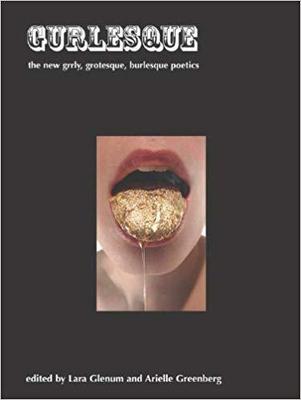 Bringing together eighteen poets of diverse backgrounds, Gurlesque: the new grrly, grotesque, burlesque poetics creates “radical, femme, Third Wave” feminist poetry by uniting them without depriving each of their own style. Like burlesque, gurlesque revolves around themes of camp and kitsch, oftentimes turning them on their heads. The collection also pairs the poets with visual artists with the same rebellious sensibility.
Bringing together eighteen poets of diverse backgrounds, Gurlesque: the new grrly, grotesque, burlesque poetics creates “radical, femme, Third Wave” feminist poetry by uniting them without depriving each of their own style. Like burlesque, gurlesque revolves around themes of camp and kitsch, oftentimes turning them on their heads. The collection also pairs the poets with visual artists with the same rebellious sensibility.
60. The Norton Anthology of Poetry edited by Margaret Ferguson, Mary Jo Salter, and Jon Stallworthy
 The Norton Anthology of Poetry is the perfect primer for a wide range of poetry spanning the ages. From Beowolf to Louise Edrich, it has almost everything you’d need if you were to start your study of the genre from scratch. This anthology provides over one thousand years of verse from the medieval period to the present. If all that wasn’t enough, it’s also a classroom standard in English.
The Norton Anthology of Poetry is the perfect primer for a wide range of poetry spanning the ages. From Beowolf to Louise Edrich, it has almost everything you’d need if you were to start your study of the genre from scratch. This anthology provides over one thousand years of verse from the medieval period to the present. If all that wasn’t enough, it’s also a classroom standard in English.
61. The BreakBeat Poets: New American Poetry in the Age of Hip-Hop edited by Kevin Coval, Quraysh Ali Lansana, and Nate Marshall
 If you are a member of the hip hop generation, this is the anthology is for you. Featuring 78 poets born somewhere between 1961-1999, The BreakBeat Poets is perfect for people who love Hip-Hop — and for those who never really connected with poetry at all. As its description states, this anthology is also “for people who thought poems were only something done by dead white dudes who got lost in a forest.” The BreakBeat Poets is a refreshing anthology that gives the canon a good dose of what it’s been missing.
If you are a member of the hip hop generation, this is the anthology is for you. Featuring 78 poets born somewhere between 1961-1999, The BreakBeat Poets is perfect for people who love Hip-Hop — and for those who never really connected with poetry at all. As its description states, this anthology is also “for people who thought poems were only something done by dead white dudes who got lost in a forest.” The BreakBeat Poets is a refreshing anthology that gives the canon a good dose of what it’s been missing.
***
Looking for other types of collections to sink your teeth into? Check out these must-read short story compilations.
